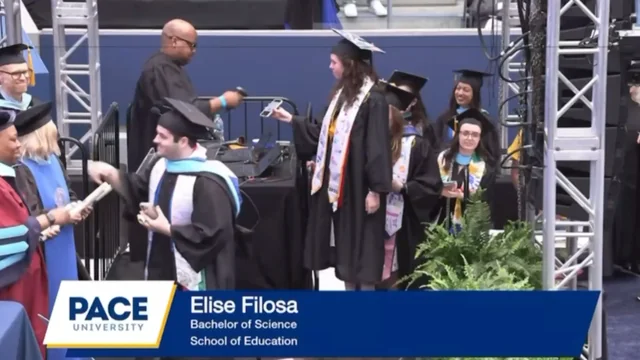By Lexx Thornton
Graduation season packs out the entire month of May with undergraduate graduations and graduate graduations. Graduation season is such an exciting time for any college graduate, but what’s not exciting is when you are walking up the steps to walk across the stage after hearing your name, it’s pronounced wrong. What are you to do? Do you stand there waiting for them to try again or do you continue walking? Due to this, some colleges and universities have resulted in utilizing AI readers during graduation ceremonies.
This technology is being adopted to streamline the process, ensure accurate pronunciation, and accommodate large graduating classes. The AI systems often use advanced speech synthesis and phonetic pronunciation databases, allowing students to submit pronunciation guides. While some students and faculty have expressed concerns about the impersonal nature of this technology, it has also been praised for its efficiency and ability to reduce errors.
Tassel provides other graduation services, such as registration and guest ticketing, the name announcement service that is AI-driven. The names are generated from a pronunciation database, which has syllabic pronunciations for over 100,000 names, according to Tassel’s website.
“We partnered with our voice professionals, compensating them to use their voices for AI-generated announcements,” a Tassel spokesperson wrote. “These aren’t basic AI voices like Siri or Alexa — they’re broadcast-quality and virtually indistinguishable from manual recordings.”
Even if the university had good intentions, some say the automation’s inauthenticity diminished the importance of the moment.
“It basically reduces the recognition of your students who just graduated to a task that you think should be done by computers instead of by your administrators who oversaw that and oversaw all the work that the students put in,” a student said.
While many universities are approaching AI with caution, some have notably embraced it. Computer science students can now pursue a concentration in AI, and the university recently established a partnership with Anthropic, an AI research and development company, to provide students and staff with access to Claude, the company’s generative AI platform.
“Claude, available with your Northeastern account, can help you organize notes and draft outlines, break down challenging topics into digestible material, and more to help you work more efficiently,” the university wrote on its website. “Claude for Education includes Learning mode, which is a set of education-specific features, such as project templates, designed to help students learn.”
The lines have only been blurred further by professors using AI, leading one student to file a complaint and request reimbursement of tuition for a class after she discovered signs of AI in her professor’s slide presentations and lecture notes. Officials ultimately decided not to reimburse her, but her professor did end up expressing regrets about the situation.
Furthermore, recent graduates who are already concerned about the current job market are worried about AI’s looming presence and the impact it will have on their future.

